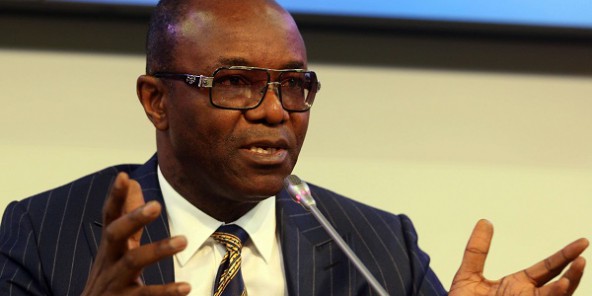This weekend, the minister of State for Petroleum Resources, Mr Ibe Kachikwu, hinted that the price of Premium Motor Spirit, PMS, is rising above the current pump price, but that there might not be an upward price review because the Nigerian National Petroleum Corporation, NNPC, is currently absorbing the differences in the prices.
Kachikwu stated that due to the rising cost of PMS, also known as petrol, a number of oil marketers had stopped importing the commodity, leaving the NNPC as the major importer of majority of the product into the country.
He said, “The environment has since changed. When we did all these, pricing for crude was more in the $25 to $30 per barrel; today, it is in excess of $54, which is fantastic because it means that our revenue stream is improving.
“But, it is a twin window, whenever the price of crude goes up, obviously the price of refined petrol goes up and we begin to have a systemic challenge in terms of the pricing on the local base.
So that gap has begun to return and today what you find is that the NNPC continues to import massively on behalf of the Federal Government.
It has gone back to about 90-95 percent for the whole country and therefore its books are absorbing some of the cost implications of this.
“The second is that once this happens the marketers begin to shift backward. Participation by individual marketers to help us continue the normal business and marketing cycle that should be what you expect is no longer existing. Most of them are not importing.”
On the Federal Government’s plans, Kachikwu stated: “One of the things we are doing is that we are looking at our existing template position, and what we are doing with that is first addressing some of the soft ends of things that affect pricing. “We are removing too many multi-layered charges on importation.
We are working with the ministry of transport to reduce those to what was initially approved by the president, and as such, we should take away a good chunk of the expenses.
We are working to see how the Central Bank of Nigeria, CBN, can provide us with a fairly subsidized foreign exchange, FX, for products priced in dollars.”
He further stated that the Federal Government is considering a situation whereby over a period of time, marketers would take over the responsibilities of the Petroleum Equalisation Fund, PEF, of funding trucking and keeping prices stable across the country.
He also disclosed that in the long run, the NNPC would have to reduce its presence in the country’s petroleum downstream sector because of the cost on its books, adding that the NNPC would have to begin to operate as a profit entity.
He assured that there is an adequate quantity of petrol in the country to prevent a recurrence of fuel scarcity.
He said, “There isn’t fuel scarcity, we are not short of products, but yet the downstream and midstream sectors continue to remain challenged. And what we are going to do is to analyze what we have done so far and begin to throw solutions to some of these challenges.
“We had issues of pricing efficiency and governance, for at that time the prices we were selling at were so ridiculously below what the sustainable prices are. And you find a situation where basically marketers disappeared from the industry. So, we had massive shortages, queues and everything seem to be breaking down. We’ve since come out from that.
“First we have moved from a fully subsidy based sector to a partially liberalized sector. I say partially because we haven’t quite achieved the template to have a fully liberalized sector. What that has done for us is that it had reduced consumption from 50 million litres to 37 million litres a day.”




 Premier League
Premier League